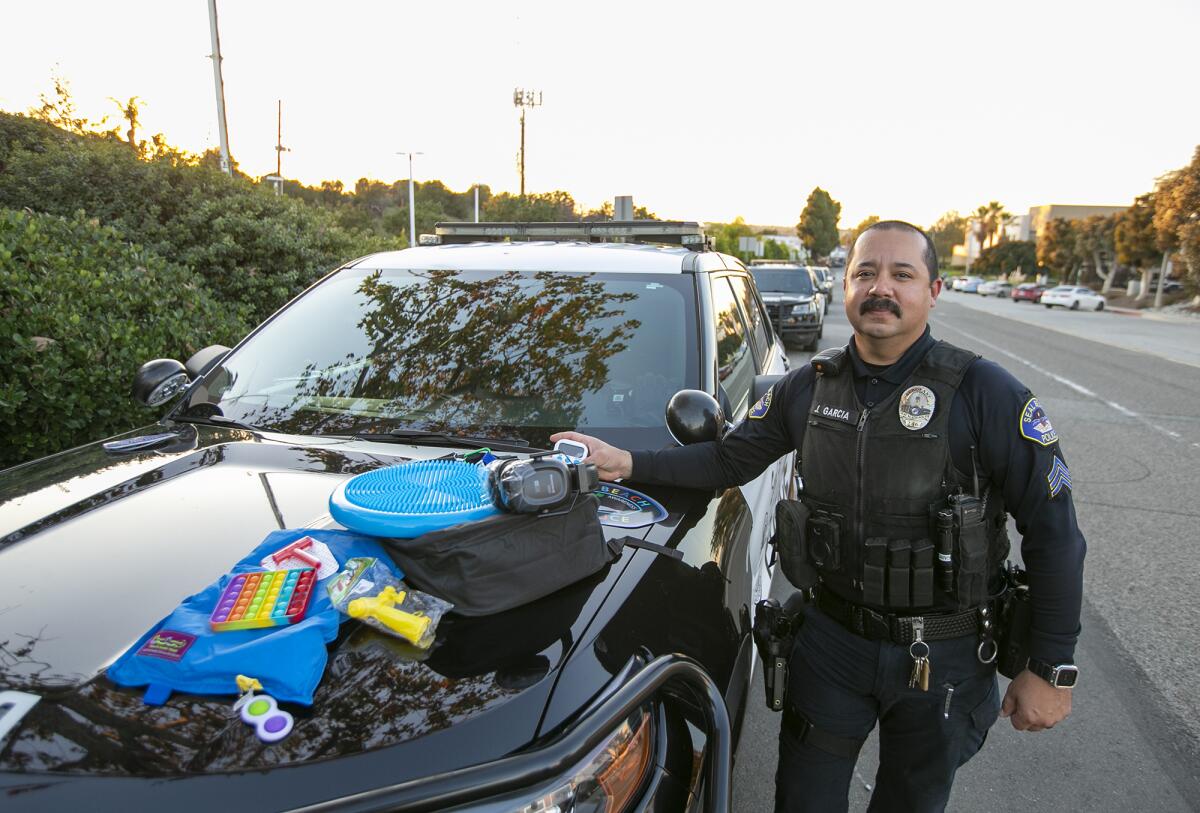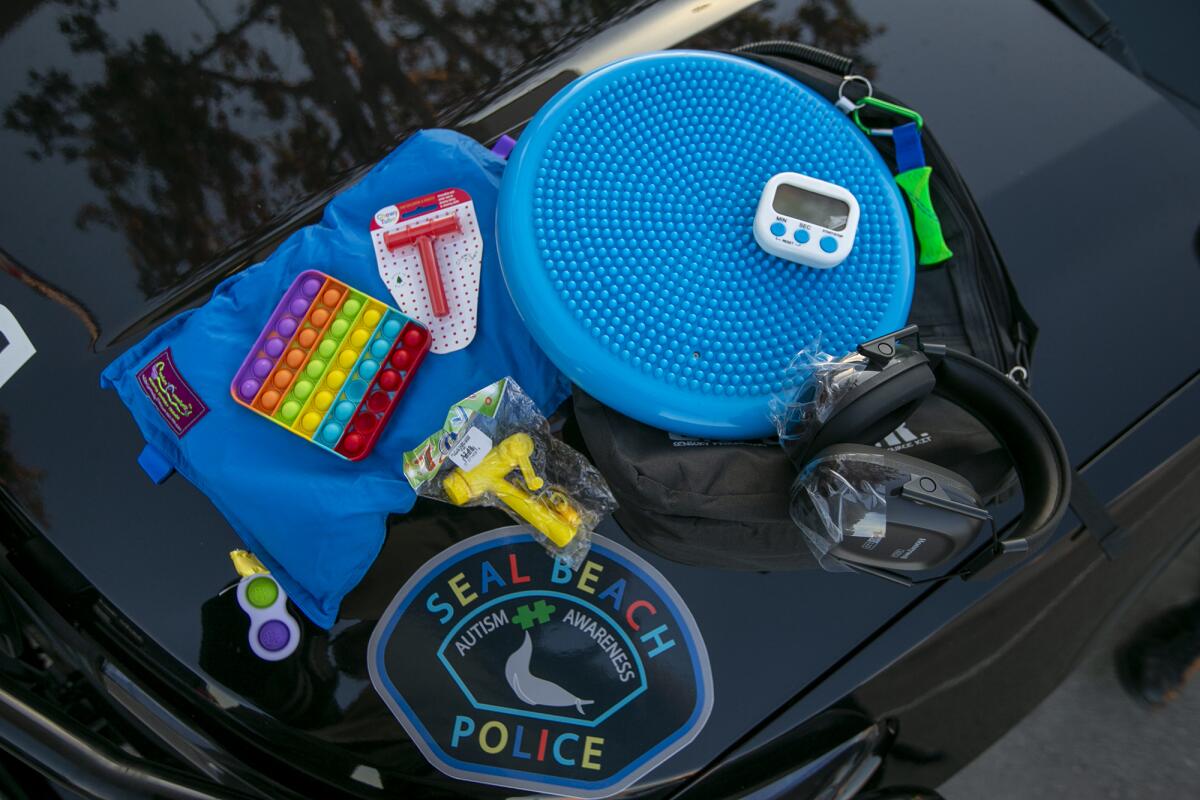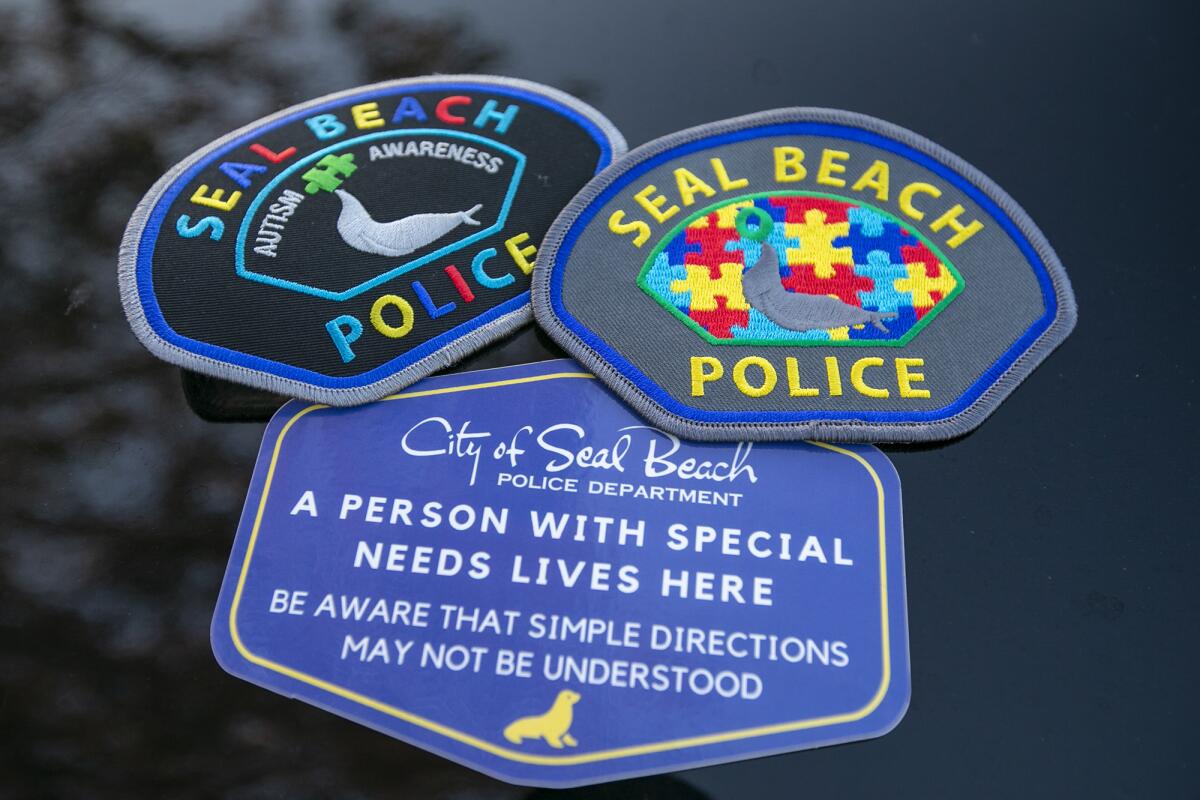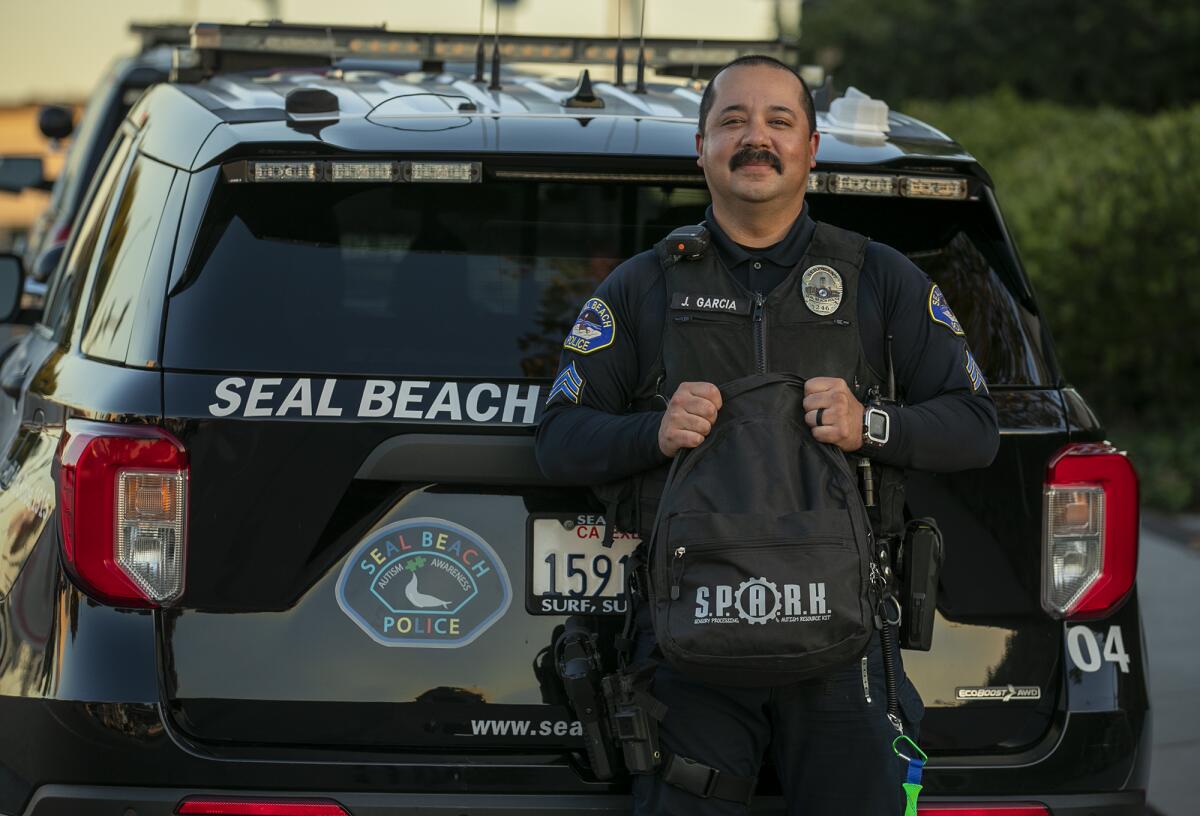Seal Beach police sensory kits one more way to serve people with autism, special needs

When Seal Beach police officers hit the streets, their patrol vehicles are packed with devices and pieces of equipment designed to keep them and the public safe in unforeseen circumstances.
And now the department has added one more safety tool, though it’s not any type of firearm, shield or armor but rather a backpack containing a fidget spinner, headphones, rubber toys and a kitchen timer — items that may have a calming effect for people with autism spectrum disorders or other special needs.
The idea of providing sensory kits was broached by Sgt. Joe Garcia, the father of a 9-year-old son on the spectrum who is using his personal experiences and discoveries about the complex disorder to help the Seal Beach police department better serve the local community.
Garcia, 42, said he and wife Evelyn were taken aback six years earlier when their son, Joey, was diagnosed with autism. While most kids at that age were beginning to speak full sentences, Joey was mostly nonverbal and would occasionally have “meltdowns” when situations seemed too intense.

“We were new parents — we had no idea how to deal with a child with autism,” Garcia recalled in an interview this week. “Then he was in extensive therapy and receiving ABA [Applied Behavioral Analysis]. We just learned a lot through the services my son was receiving about what would help him cope with his frustration.”
They learned, for example, giving Joey a fan with LED lights seemed to capture his attention and distract him from upsetting stimuli, while a weighted lap pad provided physical comfort. Headphones helped shut out loud noises, while setting a simple kitchen timer provided a finite time window during which the child could relax.
Garcia, who came to the department as an aide in 2000 and joined the force six years later, immediately saw how these tools could help improve police work.
“Our hope is to help the officer build a rapport with that person and help get answers for something they’re investigating, so the officer can perform their duties as best they can,” he said.

The sensory kits are just the latest of Garcia’s recommendations, according to department spokesman Lt. Nick Nicholas, who described an ongoing effort to ensure safe and successful police interactions with differently abled individuals.
“We’ve done a really good job, both in Orange County and the Seal Beach Police Department to provide our officers special training on how to identify and interact with people who have developmental disabilities,” he said of sessions led by mental health experts.
“However, that’s not necessarily enough. Now we’re taking the next step to make sure these interactions are more positive.”
The department last year created stickers citizens can place in the windows of their homes or vehicles to indicate a person with special needs may be inside. That alerts officers on scene in a crisis that an individual might not display a typical or expected behavior when interacting with police.
“We’ve seen across the country tragic incidents and occasions when police respond to a situation that may involve a person with autism or developmental disabilities,” Nicholas said, indicating behaviors may be read as intoxication or unprovoked violence.

The trend isn’t a new one. In 2001, the FBI Law Enforcement Bulletin reported people with developmental disorders were seven times more likely than the average adult to encounter law enforcement and suggested training and the use of special techniques by officers.
A 2017 study published in the Journal of Autism and Developmental Disorder tracked 284 adults and adolescents over a 12- to 18-month period and found 16% experienced police involvement, primarily due to aggressive behaviors.
On June 14, 2019, an off-duty Los Angeles police officer shopping at a Costco store in the city of Corona engaged in an altercation with Kenneth French, a 32-year-old man with a cognitive disability, who’d been at the store with his parents, that ended with French’s death.
The officer’s attorney claimed French acted aggressively, provoking the officer to defend himself and his family. Opposing lawyers maintained the death could have been prevented had the officer recognized signs of French’s disability and employed deescalation techniques.
Seal Beach Mayor Joe Kalmick studied autism spectrum disorders as a psychology student at UCLA under famed Norwegian scientist and ABA pioneer Ole Ivar Lovaas in the 1960s. Acknowledging the disorder as something often misunderstood among the wider community, he said Monday it’s important to spread awareness.
“This has to carry over to the children in our city on the spectrum, so they know there’s support out there and they’re not alone,” he said Monday. “So, we’ve taken all of Sgt. Garcia’s ideas and just run with them.”
In recognition of Autism Awareness Month in April, police officers place magnetic decals on their vehicles and wear one of two patches featuring a seal balancing a puzzle piece or set against a background of puzzle pieces — an image that has come to define the awareness movement.
Available year round for $10 with proceeds being donated to Seal Beach agency Autism Partnership, the patches, like the stickers and sensory kits, are signs of a deeper commitment of the city’s support for those with special needs in Seal Beach, Kalmick said.
“These are members of our community just like anyone else,” he added. “The more understanding there is, I think the more progress that is made.”
All the latest on Orange County from Orange County.
Get our free TimesOC newsletter.
You may occasionally receive promotional content from the Daily Pilot.




